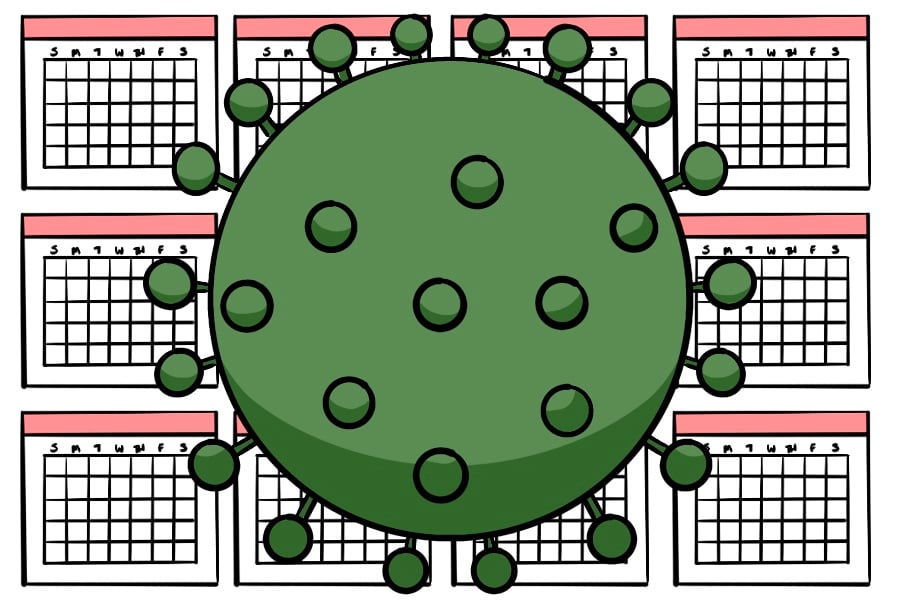What is the “college experience” in a pandemic world?
SHIELD is a testing program run by the Illinois Department of Public Health and the University of Illinois.
January 18, 2022
Since middle school, Weinberg junior Kate Feldstein had been looking forward to playing Ultimate Frisbee in college.
Northwestern offered her the opportunity to play on the women’s team — a drastic contrast to being the only female player on her high school team. She’s been a member of the club frisbee team for three years, but Feldstein has yet to play a real season.
As the omicron variant delays a return to pre-pandemic normalcy, NU students reflect on the changing definitions of the “college experience.” In addition to athletics, the pandemic disrupted in-person classes, an essential part of the college experience for Feldstein.
“College is partially about being intellectually immersed in things that you can’t do otherwise, especially at a place like NU,” Feldstein said.
She added that disappointment in the quality of online classes was common among students.
Weinberg sophomore Ri Boksenbaum said she doesn’t like online classes and compared them to watching YouTube videos. For sophomores like Boksenbaum, virtual learning has accounted for most of their time at NU.
“It’s hard to imagine being an NU student without COVID,” Boksenbaum said.
The disruptions to academic and social life caused other students to change paths of study, or even universities.
Communication junior Emefa Dzodzomenyo, a transfer student, was in her second semester at Columbia University when COVID-19 hit. Although the pandemic caused her to miss out on spending spring with her newfound friends and a summer theatre internship, time away from school allowed her to be more “intentional” about her goals.
While on leave from school in the fall, Dzodzomenyo said she wrote both a blog and a script and worked on virtual side projects. She said she likely would not have transferred to NU without the pandemic’s interruption to in-person learning.
Before the unpredictable nature of the pandemic, Dzodzomenyo said she imagined herself being more social in college and partying more frequently.
“I do kind of miss or mourn for the college experience that I didn’t get to have,” she said.
While Dzodzomenyo said she doesn’t think partying during the pandemic is a good idea, she said she wonders if she used COVID-19 as an excuse to be antisocial.
For Weinberg sophomore Austin Segal, the pandemic prompted a change in their priorities and major. Originally intending to study film, he switched to sociology and Mathematical Methods in the Social Sciences.
“There were so many people suffering from the pandemic and … we saw this extreme brutality (toward) people protesting all throughout the country,” Segal said. “I realized I wouldn’t really be happy with myself if I wasn’t directly helping (to) make people’s lives better.”
Segal said they hope to possibly pursue a law degree and advocate for civil rights or conduct sociological research.
While NU classes resumed in-person Tuesday, many students expressed pessimism or hesitancy at best about a return to pre-pandemic normalcy. Boksenbaum said she personally prefers in-person learning to virtual classes, but she believes resuming in-person activities risks the safety of the NU community.
“There’s a conflict between what is best for individual students and what is best for the community at large,” Boksenbaum said.
Email: isabellebutera2025@u.northwestern.edu
Twitter: @isabelle_butera
Related Stories:
— Students protest, petition against decision to return to in-person learning Tuesday
— NU to start in-person instruction Jan. 18 after record number of COVID-19 cases
— A year into the pandemic, students reflect on how life over Zoom has impacted mental health, social lives


